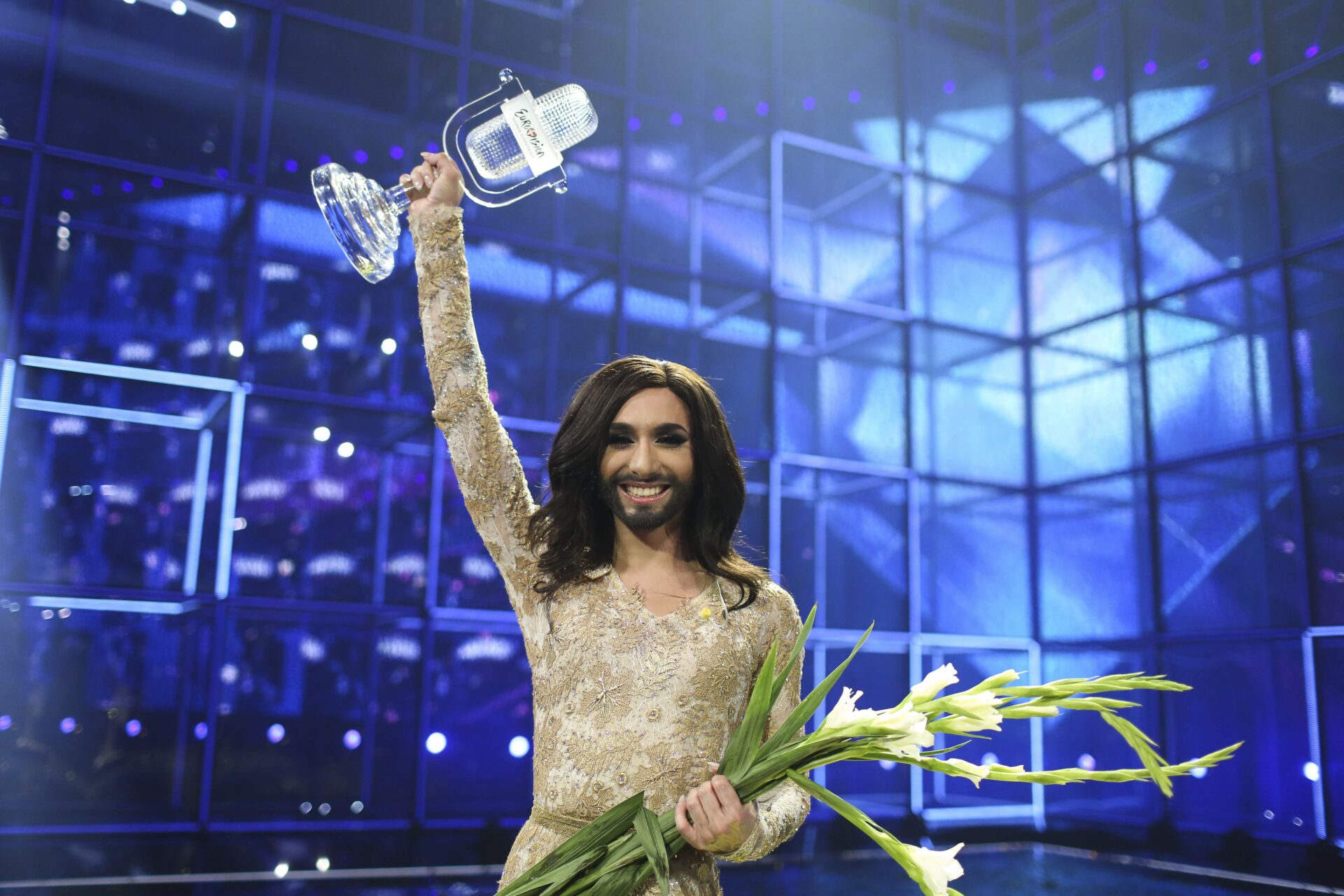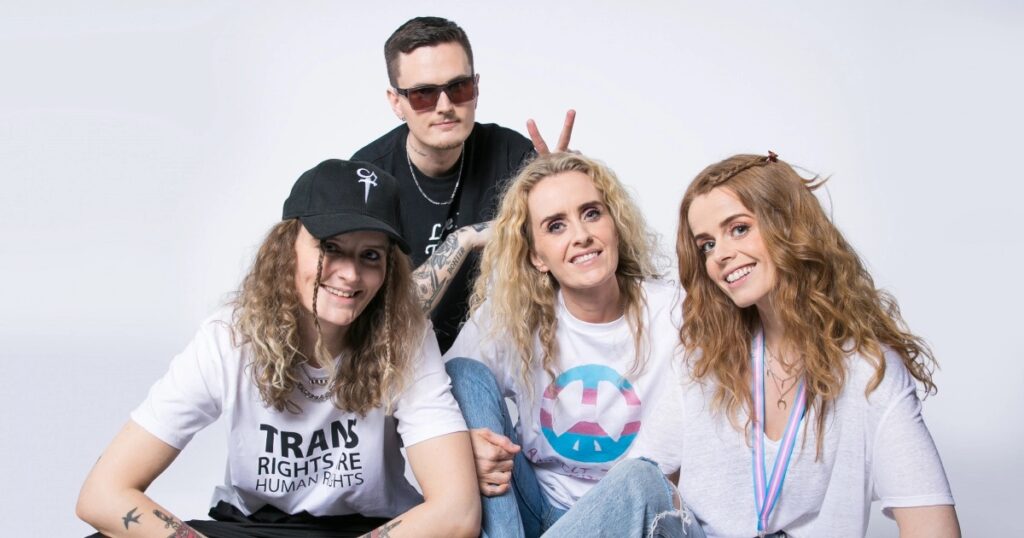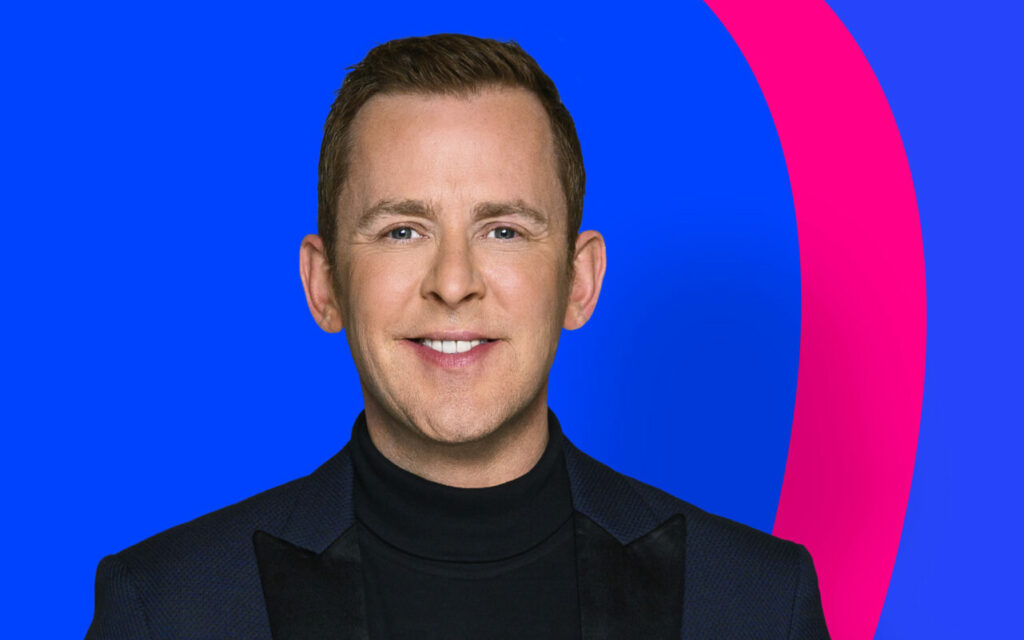‘Queer people are central to the contest’: What Eurovision means to the LGBTQI+ community
Exclusive: For many, the Eurovision Song Contest is a fun Saturday night every year in May, but for LGBTQI+ fans of the contest it means so much more.
By Matt Baker

Although officially a non-political entertainment event, The Eurovision Song Contest is known for promoting inclusivity, diversity, and acceptance of all identities through music.
Its mission statement reads: “The Eurovision Song Contest’s values are of universality and inclusivity and our proud tradition of celebrating diversity through music which is reflected in our global audiences of over 180 million.”
“Eurovision has never shied away from representation” – Scott Mills
It’s no surprise that the LGBTQI+ community found a home in the contest. With inclusivity comes representation.
So how exactly has Eurovision become such a safe haven for the community over the past 57 years?
Queering the contest
Over the years, there have been many LGBTQI+ performers, musicians, commentators, and presenters. Whether it’s being LGBTQI+, presenting a queer aesthetic, or singing about the experiences faced by the rainbow community, representation has been omnipresent.
Radio DJ and television presenter, Scott Mills, who is a gay man and has been part of the BBC’s Eurovision presenting team for over a decade. Speaking to Attitude ahead of this year’s contest, Scott says: “Eurovision has been at the forefront of visibility for our community for decades and is one of the reasons it’s so close to my heart. It’s one of the few television events where people can fully be themselves. From Dana International [Israel 1998 and 2011] to Conchita Wurst [2014]. Eurovision has never shied away from representation.”
Monty Moncrieff, CEO of LGBTQI+ charity London Friend and Eurovision fan since the 1980s, agrees visibility is what hooks fans. “It would be easy to think that Eurovision appeals to LGBTQ+ people because of the camp and glitz but I think that’s a superficial reading,” he says.

“The truth is we’re drawn to it because we see ourselves represented and included. As early as 1961, the winning song ‘Nous Les Amoureux’ was about lovers unable to be together because of society’s views, and of course there’s a gay interpretation of that. Winners including Dana International, Conchita Wurst, and Duncan Laurence have placed queer people central to the contest and increased visibility.”
“Nothing excites me more than seeing so many people trying Eurovision for the very first time” – Scott Mills
In recent years, the show’s organisers have worked hard to demonstrate LGBTQI+ inclusion to make sure travelling fans feel safe. “I’m travelling to Liverpool this year and it’s great to see LGBTQI+ inclusion,” says Monty. “It’s not always safe for LGBTQI+ travellers. This shows the city has thought about this and wants to reassure us we’ll be welcomed.
“Actions like this have been especially important when the contest has gone to less tolerant places. I went to Kyiv ahead of Eurovision in 2017 on behalf of the UK fan club, as the British Embassy and British Council wanted to understand LGBTQI+ fans concerns. And they did a great amount of work to offer support and reassurance we’d be safe.”
What is being represented on stage is art imitating life. For the people watching at home, the Eurovision Song Contest offers a sense of belonging. And, for some, a way to connect with family.

Family reimagined
While the Eurovision Song Contest is primarily focused on music, there are several themes related to family present in the competition. These themes reflect the importance of cultural heritage, unity, inclusivity, personal relationships, and emotions – all important elements of familial relationships.
For LGBTQI+ fans, sitting down and watching Eurovision can be a safe space for family interactions that otherwise might be difficult, awkward, or even impossible.
Scott Mills has found a similar feeling of togetherness whilst working on the contest. “As a non-sports fan, I’ve always been jealous of friends who have a football team to support, and who can chat about the sport in minute detail in the pub, dissecting every part of it. I’ve never had that, so Eurovision carries the same feeling as that to me; the feeling of all being in it together. There’s nothing like it.
“As a fan and as someone who has worked at the contest for over a decade, nothing excites me more than seeing so many people trying Eurovision for the very first time – or the first time in years – and really enjoying it. Our success last year has invigorated interest. People have realised as they were cheering on the UK’s Sam Ryder last year that the modern contest is nothing like the last time they watched.”
Identity politics
There lots to unpick around LGBTQI+ rights through the prism of Eurovision. The contest is an international festival broadcast globally, and a place where geopolitics and identity politics collide.
Catherine Baker is a lecturer in 20th Century History at the University of Hull. She wrote her PhD thesis in 2005-8 on popular music and national identity in Croatia after finding Croatian popular music through Eurovision. Catherine has written extensively about the contest and has explored themes around bridging queerness and family.
“Eurovision has probably resonated like that for a lot of LGBTQI+ fans my age and older”
She recalls watching Eurovision for the first time in 1993. Catherine continued: “It was the only place you’d hear pop music in so many different European languages at once. Languages and history gave me things to focus on at school when I didn’t know what I was. Eurovision inspired me to find out more about them.
“Then as I got to know Eurovision better, I started realising how many fans were LGBTQI+. There weren’t many spaces like that in the 1990s! Eurovision has probably resonated like that for a lot of LGBTQI+ fans my age and older. That has created stronger associations with the community for younger fans too. It’s an everyday thing now for openly LGBTQI+ contestants to be participating, compared to 1997-98 when Páll Óskar (the first openly gay artist to perform at Eurovision) and then Dana International each broke their new ground. And fans learn about what being LGBTQI+ is like in different countries through the artists’ stories and their own.”
At a time when powerful forces are ostensibly trying to divide the LGBTQI+ community through the continued spread of false information, it has never been more important to embrace the things in life that celebrate every tenet of our queer existence. Amongst all the glitz, glam, and camp of the contest, Eurovision has always been a beacon of positive representation for LGBTQI+ people. Whether we knew it or not.
